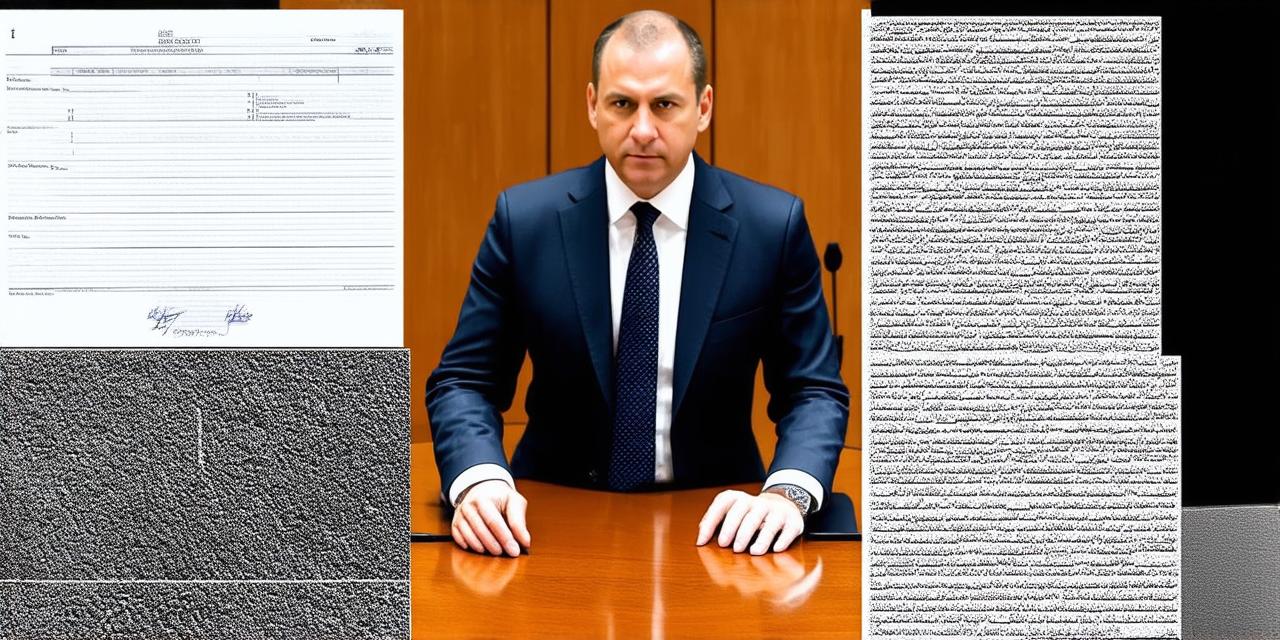Understanding the meaning of F.3d in legal documents
What is F.3d?
F.3d stands for Federal Rules of Evidence, which are a set of rules that govern the admissibility of evidence in federal court cases. These rules were created to ensure that the evidence presented in court is reliable and trustworthy, and not unduly prejudicial or misleading. F.3d covers a wide range of topics related to the admissibility of evidence, including hearsay, chain of custody, and expert witnesses.
In the context of 3D game development, F.3d may be relevant when creating contracts or licensing agreements for your game’s assets. These agreements often involve intellectual property (IP) such as characters, environments, and other in-game elements. Understanding F.3d can help you protect your IP from being misused or stolen by others.
Protecting Your IP under F.3d
One of the most important aspects of protecting your IP under F.3d is ensuring that it is properly registered with the United States Patent and Trademark Office (USPTO). By registering your IP, you can establish legal ownership and prevent others from using or selling your assets without permission. This can be particularly important in 3D game development, where IP protection is critical to the success of the game.

Another key aspect of protecting your IP under F.3d is including appropriate clauses in your licensing agreements. These clauses should clearly outline the rights and obligations of both parties, as well as any restrictions on how your IP can be used or distributed. This will help prevent others from using your assets without your permission and minimize the risk of legal disputes.
For example, if you are licensing a character design to another company for use in their video game, you may want to include clauses that restrict the use of the character to certain platforms, prohibit resale or modification of the character, and provide appropriate compensation for its use. These clauses can help ensure that your IP is used responsibly by others and protect against any potential legal disputes.
Case Studies: Protecting IP in 3D Game Development
One example of a company that successfully protected its IP under F.3d is Minecraft, the popular block-building game. In 2014, Microsoft purchased Minecraft creator Markus Persson’s company and gained ownership of the game’s IP. This allowed Microsoft to defend against legal challenges from other companies who attempted to use or sell Minecraft assets without permission. By registering their IP with the USPTO and enforcing strict licensing agreements, Microsoft was able to protect their brand and ensure that their game continued to be successful.
Another example is Epic Games, the creators of Fortnite, a popular battle royale game. In 2018, Epic Games sued two companies for copyright infringement after they created and sold in-game skins that resembled characters from Fortnite. By enforcing their IP rights under F.3d, Epic Games was able to prevent the sale of these skins and protect their brand’s image. This case illustrates how important it is for 3D game developers to take IP protection seriously and understand their legal rights under F.3d.
Summary: The Importance of Understanding F.3d for 3D Game Developers
As a 3D game developer, understanding F.3d can help you protect your IP and ensure that your assets are used responsibly by others. By properly registering your IP with the USPTO and including appropriate clauses in your licensing agreements, you can minimize the risk of legal disputes and protect your brand’s image. It is important to take IP protection seriously, as it can be the difference between the success and failure of a 3D game.
In summary, F.3d refers to the set of rules that govern the admissibility of evidence in federal court cases. In the context of 3D game development, F.3d may be relevant when creating contracts, licensing agreements, and other legal documents related to your game’s assets. By understanding F.3d and taking appropriate measures to protect your IP, you can ensure that your 3D game is successful and free from legal disputes.
